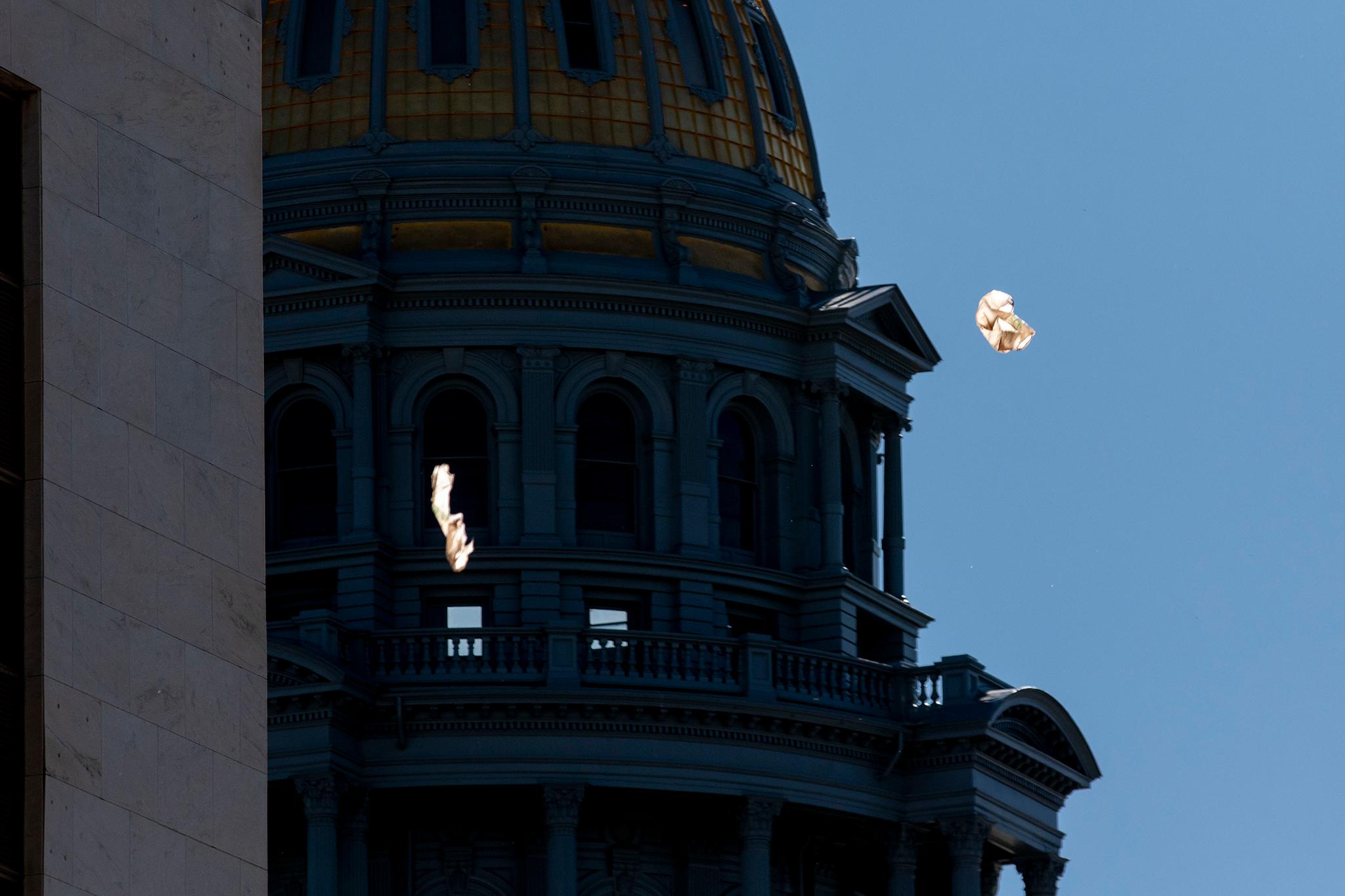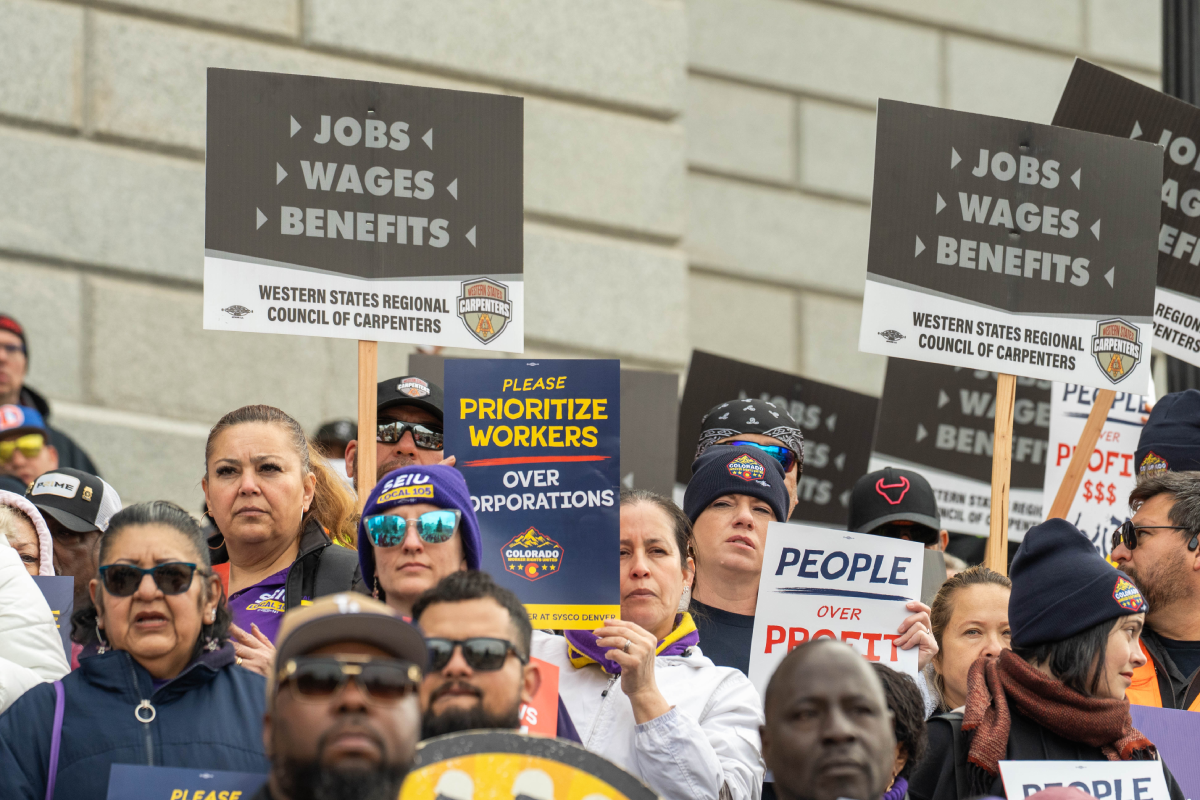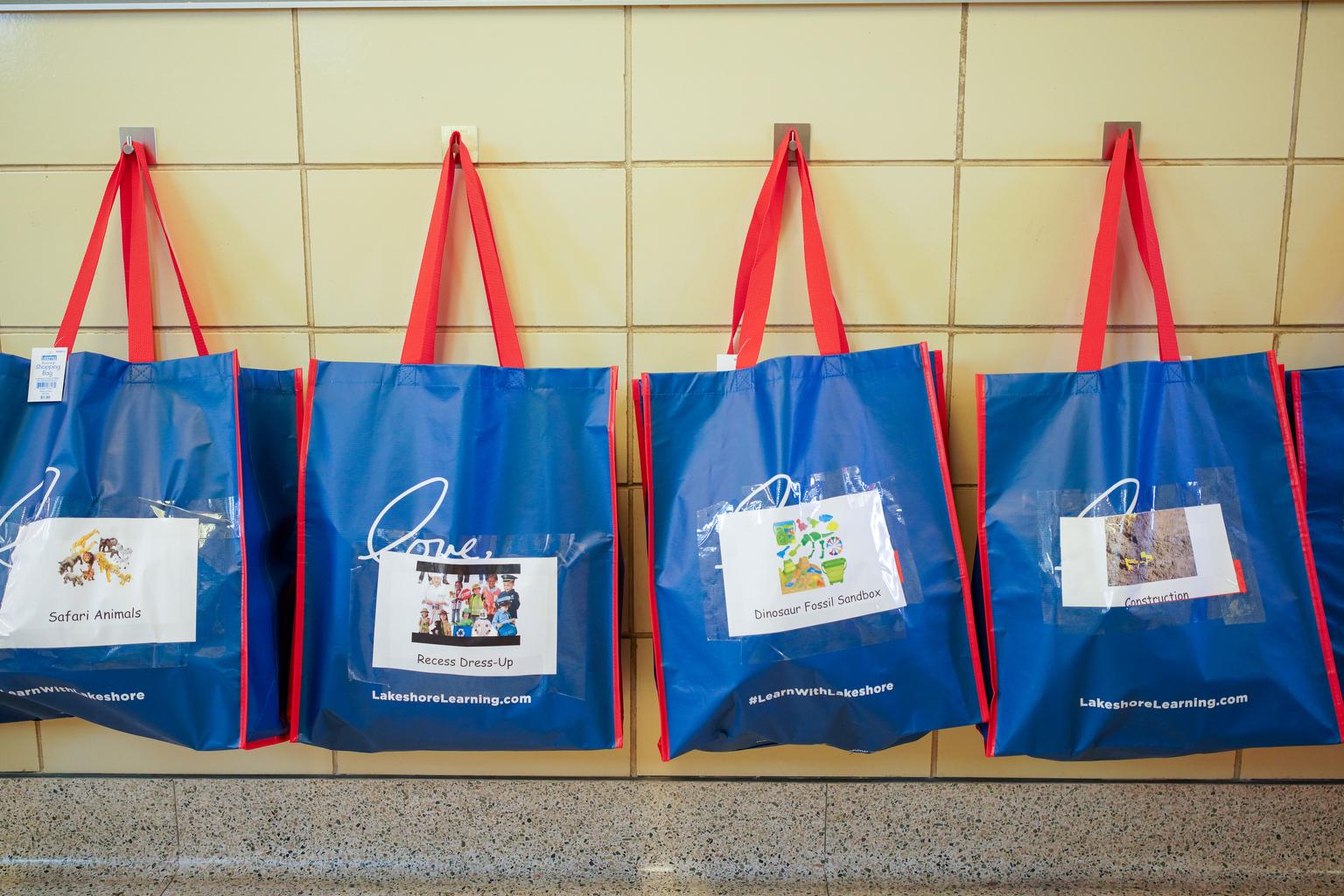
Updated 1:38 p.m., March 12
Another bill that aims to keep plastic bags and containers out of landfills and waterways in Colorado was introduced at teh state Capitol.
A bipartisan group of legislators have proposed a bill that would charge a fee on plastic food packaging used by retailers and restaurants. The three-tenths of a cent fee would fund expanded recycling and composting programs. The proposal has the backing of the American Chemistry Council, a major plastics lobbying group. Democratic lawmakers have also proposed legislation that goes further and bans plastic bags and polystyrene containers.
Earlier this month, lawmakers proposed a ban on single-use plastic bags and plastic foam containers. Our original story about that legislation continues below.
Democratic state legislators this session will introduce a bill that seeks to ban single-use plastic bags and plastic foam containers — as well as overturn a rule that could give cities power to make further cuts on plastics use.
The bill — announced Tuesday by its sponsors and advocacy group Environment Colorado — is another attempt to reduce plastic consumption after similar bills stalled in committees last year. Democratic state Rep. Lisa Cutter, one of the bill sponsors, said she is hopeful it will get support given continued reports of microplastics pollution.
“Continued use of these plastics … is not respecting our planet or the health of our children,” Cutter said. “It’s time to start chipping away at our reliance of single-use plastics, and this legislation will be a great step in the right direction.”
Microplastics — tiny pieces of degraded plastic — have long been studied as a major source of pollution in oceans, soils and food. A 2019 study by the U.S. Geological Survey found them in 90 percent of rainwater samples taken in Colorado, including in Rocky Mountain National Park.
Plastics production was projected to skyrocket before the coronavirus pandemic. As restaurants were ordered to shut down their dining rooms, owners stocked up on plastic bags and containers for takeout.
Several states have already banned single-use plastic bags, including California, Vermont and Hawaii. Polystyrene foam packaging — commonly referred to by the brand name “Styrofoam” — used by restaurants was also banned in Maine and New Jersey, which enacted its law in November.
Colorado legislators are still drafting the bill and plan to introduce it in the coming weeks. They are still negotiating how the state would enforce the ban and exactly when it would go into effect.
Tim Shestek, the senior director of state affairs for the American Chemistry Council, which represents plastics manufacturers, said banning just one form of packaging wouldn’t make a major impact in reducing waste.
“It doesn’t address likely alternative products, replacement products,” he said. “You’re just going to ban one type of to-go containers, but a restaurant or a deli is going to have to use something to package food to go.”
One major piece of the legislation would overturn a state law that prohibits local governments from banning “specific types of plastic materials or products,” passed in 1989 to incentivize recycling as plastic bottles became more popular. A similar bill failed in committee last year.
“We have preemption removal in the bill, but [it’s] down the road, so businesses have time to adapt to this floor before any kind of government action goes further,” said Democratic state Rep. Alex Valdez, one of the sponsors. He added that the bill would not allow cities to do less than the statewide standard.
Megan Ossola, owner of The Butcher & The Baker cafe in Telluride, presented during Tuesday’s announcement. She said she supported the bill since there are now more environmentally friendly packaging options from which restaurateurs can choose.
“The difference in the pricing is fairly insignificant,” Ossola said. “I think the difference in price will go down as the competition for our business increases.”
Legislators said they have used those past efforts and models of other states to craft a bill that is more thoughtful, cohesive and looks at the trends of more sustainable materials being produced in the future.
“There’s always a time when you have to balance the things that need to be done right now and the immediate concerns with looking forward a little bit, and I think we’re in that place right now,” Cutter said.









